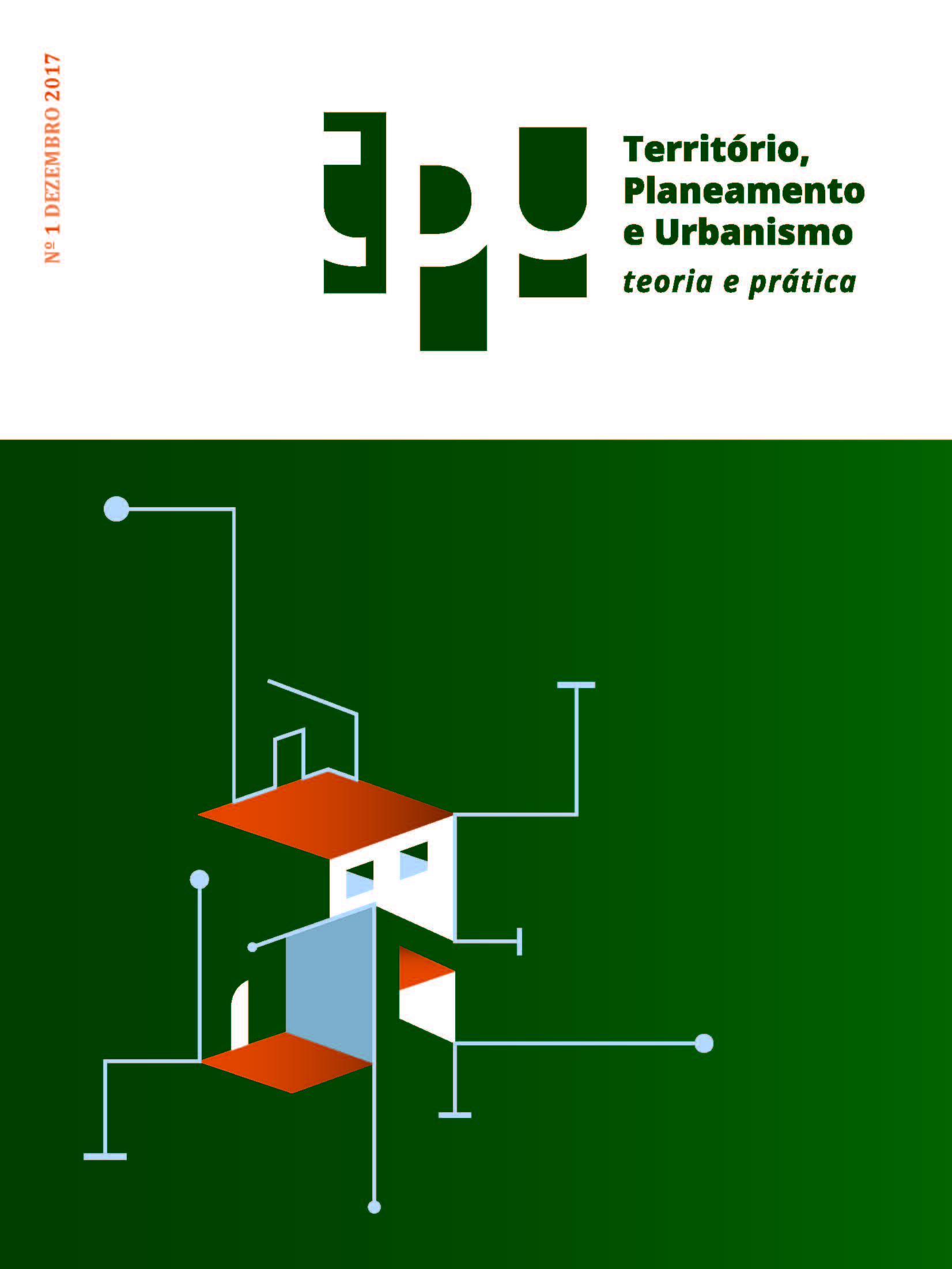Território, planeamento e outras ficções
Abstract
The title of this new journal - Territory, Planning and Urbanism - theory and practice - contains three words whose meanings oscillate between two extremes: sometimes they seem almost self-explanatory, so familiar to us and o abundant in any common discourse about almost everything; sometimes they easily entangled in such a plurality of unstable, contradictory meanings, manipulations that they seem to be at risk of eminent collapse by too much polysemy and utter lack of clarity. While planning seems inoperative and confusing, adjectives that say nothing, like “sustainable”, “resilient” and other placebos, swarm. Probably the proliferation of vague concepts is due precisely to such inoperability. The state of the art is a huge mess.
The reason for this contradiction is partly explained by the fact that no one really wanted to know what happened to the planning and urban planning of the postwar gold years if they had at the same time overwhelmingly changed the logics and socio-technical devices Economic and social organization (and therefore also territorial), the power of the state and the sovereignty that the nation-state had in terms of social regulation (urban planning and urbanism included).
Territory, planning or urbanism are very open fields of knowledge, fed by a huge variety of scientific and non-scientific fields, theoretical and applied, from the natural sciences to the social sciences, from politics to common sense. Purely analytical attitudes are mixed here, with prescriptive attitudes where what “must be, may already have completely lost its reason for being so. We have the common evidence that territory is the place where things exist, na-mely in terms of how they are individually and collectively appropriate. The crisis of territory or urbanization (the city is only a literary metaphor) is the crisis of public affairs, of the res publica, and will only be clarified when we can clarify who governs us, with what objectives and, above all, how we want to be governed there Of the closed rhetoric where they place us - markets, competitiveness, globalization, entrepreneurship, nature, the environment... and other words to review or destroy.
References
Allenby, B. R. & Sarewitz, D. (2011). The Techno-Human Condition, the MIT Press
Ascher, F. (2004). La société hypermoderne, ou Ces événements qui nous dépassent, feignons d'en être les organisateurs, L'Aube, Paris.
Beck, U. (1995). Ecological Politics in an Age of Risk. Cambridge: Polity Press.
Bender, T. (2010). ‘Reassembling the city: networks and urban imaginaries’, in I. Farías and T. Bender (eds) Urban Assemblages: How Actor-Network Theory Changes Urban Research, pp. 303–323. New York: Routledge.
Bourdieu, P. & Chamboredon, J. (1968). Le Métier de sociologue, préalables épistémologiques, Paris, Mouton – Bordas
Bourdin, A. (2010). L’urbanisme d’après crise, Paris, Éditions de l’Aube
Brenner, N., Peck, J., Theodore, N. (2011). Después da le neoliberalización – estratégias metodológicas para la investigación de las transformaciones regulatórias contemporáneas, Urban, Madrid.
Debardieux, B. (2007). «Actualité politique du paysage», Revue de Géographie Alpine, n°4, sobre o « empaysagement des sociétés occidentales».
Domingues, A. (2012). Paisagens Transgénicas, in Bandeira P.; Catrica, P (ed), Missão Fotográfica Paisagem Transgénica, EAUM, FCG, Guimarães 2012, Imprensa Nacional Casa da Moeda, Lisboa.
Donadieu, Pierra (2002). La société paysagiste, Actes Sud – ENSP
Domingues, Álvaro; Nuno, Travasso (2015). Território Casa Comum, FAUP, Porto
Elden, Stuart (2013). The Birth of Territory, Chicago: Chicago University Press.
Estevez, A. M. (2006). “Una genealogia de la Tecnocracia” in Henriquez, Hadée;
Estévez, Alejandro (coord) (2006), El poder de los expertos: para compreender ta tecnocracia, Universidad de Maracaibo, Ed. Astro Data.
Ferrão, J. (2011). O Ordenamento do Território como Política Pública, Fundação Calouste Gulbenkian, Lisboa.
Graham, S. & Simon, M. (2001). Splintering Urbanism, Routledge, London.
Henriquez, H., & Alejandro E. (coord) (2006). El poder de los expertos: para compreender ta tecnocracia, Universidad de Maracaibo, Ed. Astro Data, Venezuela.
Kuhn, T. S. (1991). A estrutura das revoluções científicas. São Paulo: Perspectiva (ed. original, 1962).
Lacoste, Y. (1976). La géographie, ça sert, d’abord, à faire la guerre, Maspero, Paris.
Latour, B. (s/ data). Why Has Critique Run out of Steam? From Matters of Fact to Matters of Concern in http://www.bruno-latour.fr/sites/default/files/89 CRITICAL-INQUIRY-GB.pdf
Morillas, J. M. M. (2003). Los sentidos de la violência, Universidad de Granada, Granada.Lefebvre, Henri (1967), Vers le Cybernanthrope (contre les technocrates), Paris: Denoël/Gonthier.
Popper, K. (1972). A Lógica da Pesquisa científica. São Paulo: Cultrix, (ed. original1935).
Roger, A. (1997). Court traité du paysage, Ed. Gallimard, Bibliothèque des Sciences Humaines, Paris.
Sgard, A. (2002). «Le paysage dans l’action publique : du patrimoine au bien commun», Cahiers de Géographie du Québec, déc. 2002, n° spécial, vol. 46, n°129.

